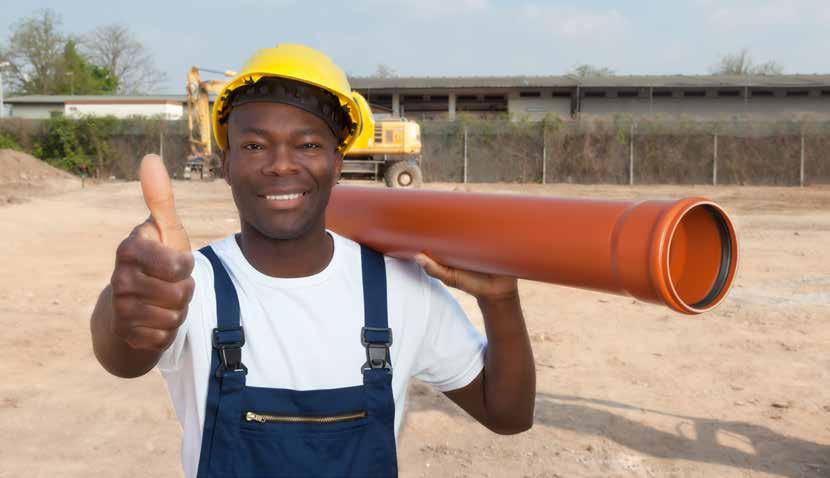
3 minute read
CEO’s comment
#AllHandsOnDeck for SA’s water future
As many of you may now be aware, we are forging ahead with the WISA 2020 Conference, opting for a virtual conference experience in light of the current lockdown conditions.
Advertisement
By Dr Lester Goldman


WISA 2020 WILL TAKE PLACE FROM 7 TO 11 DECEMBER 2020
While the Covid-19 global pandemic and subsequent national lockdown have brought many challenges for all of us, WISA has embraced the changes they have ushered in. Rather than cancelling our biennial conference, we have opted to make WISA 2020 completely virtual.
WISA is a learning organisation and, as we continue to learn every day during this pandemic, we hope to leverage these lessons to improve our future offerings. We are therefore confident that our virtual conference will pave the way for new event formats that will serve the water sector and our members.
The WISA Biennial Conference and Exhibition continues to be the premium conference for the Southern African water sector and remains highly relevant. We encourage everyone active in the water and related sectors to attend.
Addressing the water crisis The Covid-19 pandemic has served to highlight some of South Africa’s shortfalls in the adequate provision of water and sanitation. It is more vital than ever that we get #AllHandsOnDeck to address the many challenges facing the water sector and generate long-term, sustainable solutions.
With this in mind, WISA 2020 focuses on six core themes:
1Reduce water demand and increase supply South Africa’s water demand continues to rise, contributing to an estimated water deficit of 2.7-3.8 billion m 3 /annum by 2030. We must address issues and opportunities around non-revenue water, efficiencies for agricultural industrial and domestic consumers, optimising the water mix, revenue management and partnerships.
2Manage the resource for a capable ecology South Africa possesses richly diverse aquatic ecosystems, including freshwater ecoregions, rivers, wetlands and estuaries within their catchments. Unfortunately, most of our high-value aquatic ecological assets are poorly protected and therefore deteriorating. We must develop strategies, programmes and the capacity to restore these ecosystems.
3Manage and monitor effective water and sanitation services and infrastructure The water and sanitation sector is not currently financially sustainable. There is a significant gap between the funding that is needed and what is available, both from fiscal transfers and revenue. It is critical that all sectors address maintenance, operation, optimisation, cost reflection and investment in infrastructure, skills, partnerships and models.
4Govern and regulate the sector The roles of sector leaders are crucial for an integrated approach towards a secure water future. We must explore how the key actors need to work across boundaries with other institutions and state departments to place water at the centre of South Africa’s future growth and well-being.
5Improve raw water quality and management The chemical, physical and biological deterioration of water bodies poses a threat to economic growth, social development and aquatic ecological functioning. Pollution, technologies, financial flow and functionality of systems and people must all be addressed to ensure that raw water quality is protected.
6Develop skills and technology innovations and disruptors Skills to develop, implement and monitor innovative solutions and disruptive technologies are at the core of a water-secure future for South Africa. The country’s ability to educate and grow the required skills base, transfer new knowledge and shift technology into practice is crucial.

Opportunities can be realised to address our growing water crisis. WISA 2020 provides a platform for these issues to be discussed, solutions shared, and decisions taken as we work to get #AllHandsOnDeck towards a sustainable water future.










